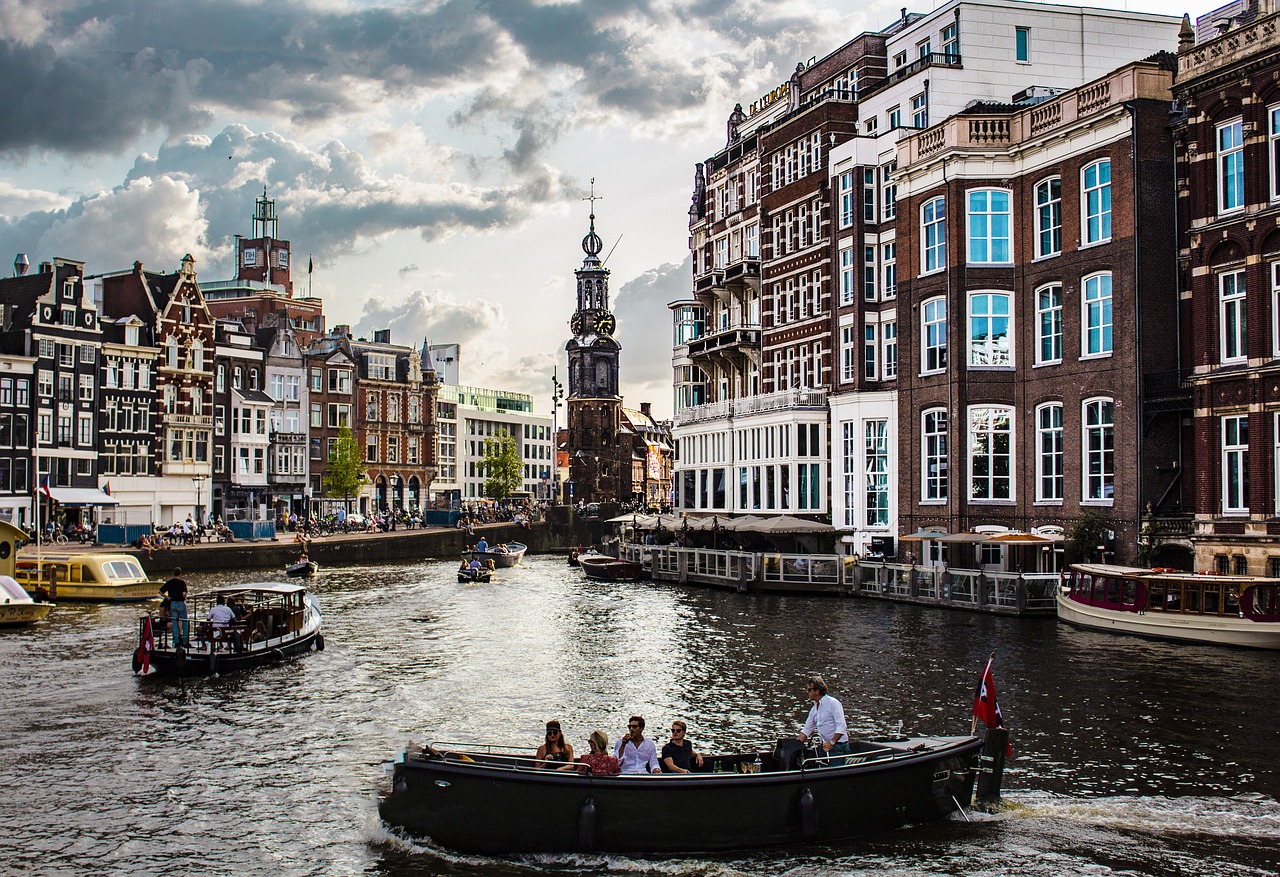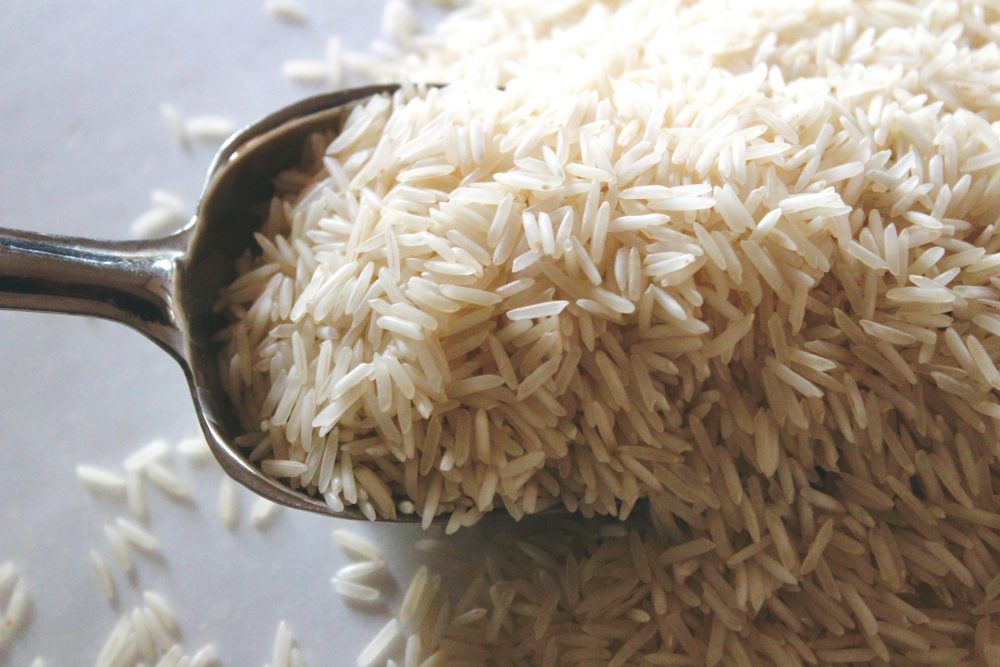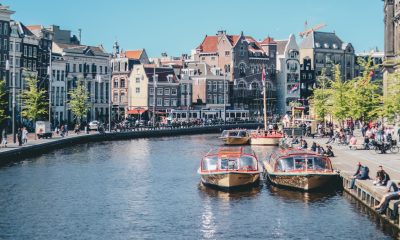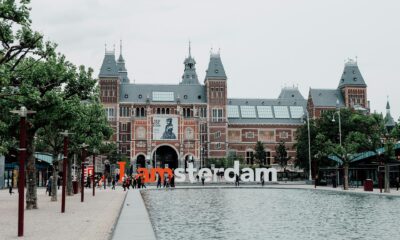Cannabis
Why Was Amsterdam Excluded from Dutch Experiment with Legal Cannabis
Amsterdam is excluded from a Dutch experiment on the controlled sale of legal cannabis, as the lower house of the Dutch parliament voted against its inclusion. The decision maintains the number of cities involved in the pilot at ten. The goal is to assess the impact of legal cannabis sales, curb illegal cultivation, and reduce criminal activities associated with the black market.

Amsterdam has been omitted from the list of Dutch cities selected for an experiment in the controlled sale of legal cannabis.
By a vote of 78 to 72, the lower house of the Dutch parliament rejected a request to include Amsterdam in the national experiment in growing and distributing cannabis, which means that the number of cities taking part in the pilot, which is scheduled to start in the summer, will remain at ten.
Find out why Amsterdam was omitted from the list and read the latest cannabis news of the day with the Hemp.im mobile app, available for free for both Android and iOS devices.
The Dutch Parliament also rejected a request to stop the entire project
As part of the experiment, the Dutch government will, for the first time, license the legal cultivation and distribution of cannabis for adult use.
“The experiment will not make it easier for young people to access drugs. This only means that production and distribution will be taken out of the control of criminals,” said Amsterdam Mayor Femke Halsema in a statement to the NL Times.
For decades, the country’s cannabis dispensaries, known as coffee shops, operated under a system in which sales were legally tolerated but cultivation was prohibited. This meant that stores had to purchase black market cannabis and hashish from growers who were growing cannabis illegally.
Start of the experimental phase without Amsterdam
As part of an effort to assess the impact of legal sales of cannabis for adult use in the country, the Netherlands recently launched a controlled experiment involving the legal sale of cannabis products in specific cannabis stores located in selected municipalities.
The launch phase of the experiment, called “aanloopfase” in Dutch, began in December in the cities of Breda and Tilburg, where about 19 participating coffee shops began offering both legally grown and black market cannabis.
Six months after the start of the experiment, around mid-June, all participating stores will go through a transition period of approximately six weeks. After this period, stores will only be able to sell legal products.
Goals of the legal supply chain pilot program
One of the main reasons for implementing a system of controlled cultivation and distribution of cannabis products is the significant problem posed by illegal cultivation. This illegal activity has long been linked to a variety of criminal enterprises, including money laundering, underground banking and lending.
So the purpose of this experiment, in which coffee shops in 10 municipalities source their cannabis from authorized growers, is to assess whether regulation proves to be a more effective approach. Expected benefits include the availability of a top-quality product that meets quality standards and a reduction in criminal activity.
Other cities such as Almere, Arnhem, Groningen, Heerlen, Maastricht, Nijmegen, Voorne aan Zee (formerly known as Hellevoetsluis) and Zaanstad will also take part in the experiment, representing an important step towards understanding the social and economic impact of legalizing cannabis.
Legalization of cannabis in Europe
The experiment with cannabis sales in the Netherlands comes at a time when European countries are showing increasing interest in reforming their cannabis policies.
In late February, Germany took a significant step by legalizing cannabis for recreational use , becoming the third EU member state to do so, after Malta and Luxembourg. Berlin also plans to launch its own cannabis pilot program to experiment with controlled sales in the country.
Although Switzerland is not an EU member state, it recently launched its own controlled cannabis sales program, pioneering this approach to assessing the potential to reform cannabis policy in Europe, possibly towards legalization for recreational use.
__
(Featured image by Monlaw via Pixabay)
DISCLAIMER: This article was written by a third party contributor and does not reflect the opinion of Born2Invest, its management, staff or its associates. Please review our disclaimer for more information.
This article may include forward-looking statements. These forward-looking statements generally are identified by the words “believe,” “project,” “estimate,” “become,” “plan,” “will,” and similar expressions. These forward-looking statements involve known and unknown risks as well as uncertainties, including those discussed in the following cautionary statements and elsewhere in this article and on this site. Although the Company may believe that its expectations are based on reasonable assumptions, the actual results that the Company may achieve may differ materially from any forward-looking statements, which reflect the opinions of the management of the Company only as of the date hereof. Additionally, please make sure to read these important disclosures.
First published in FaktyKonopne. A third-party contributor translated and adapted the articles from the originals. In case of discrepancy, the originals will prevail.
Although we made reasonable efforts to provide accurate translations, some parts may be incorrect. Born2Invest assumes no responsibility for errors, omissions or ambiguities in the translations provided on this website. Any person or entity relying on translated content does so at their own risk. Born2Invest is not responsible for losses caused by such reliance on the accuracy or reliability of translated information. If you wish to report an error or inaccuracy in the translation, we encourage you to contact us

-

 Impact Investing5 days ago
Impact Investing5 days agoVernazza Autogru Secures €5M Green Loan to Drive Sustainable Innovation in Heavy Transport
-

 Cannabis2 weeks ago
Cannabis2 weeks agoCannabis Company Adopts Dogecoin for Treasury Innovation
-

 Markets9 hours ago
Markets9 hours agoRice Market Slips Amid USDA Revisions and Quality Concerns
-

 Business1 week ago
Business1 week agoLegal Process for Dividing Real Estate Inheritance
























